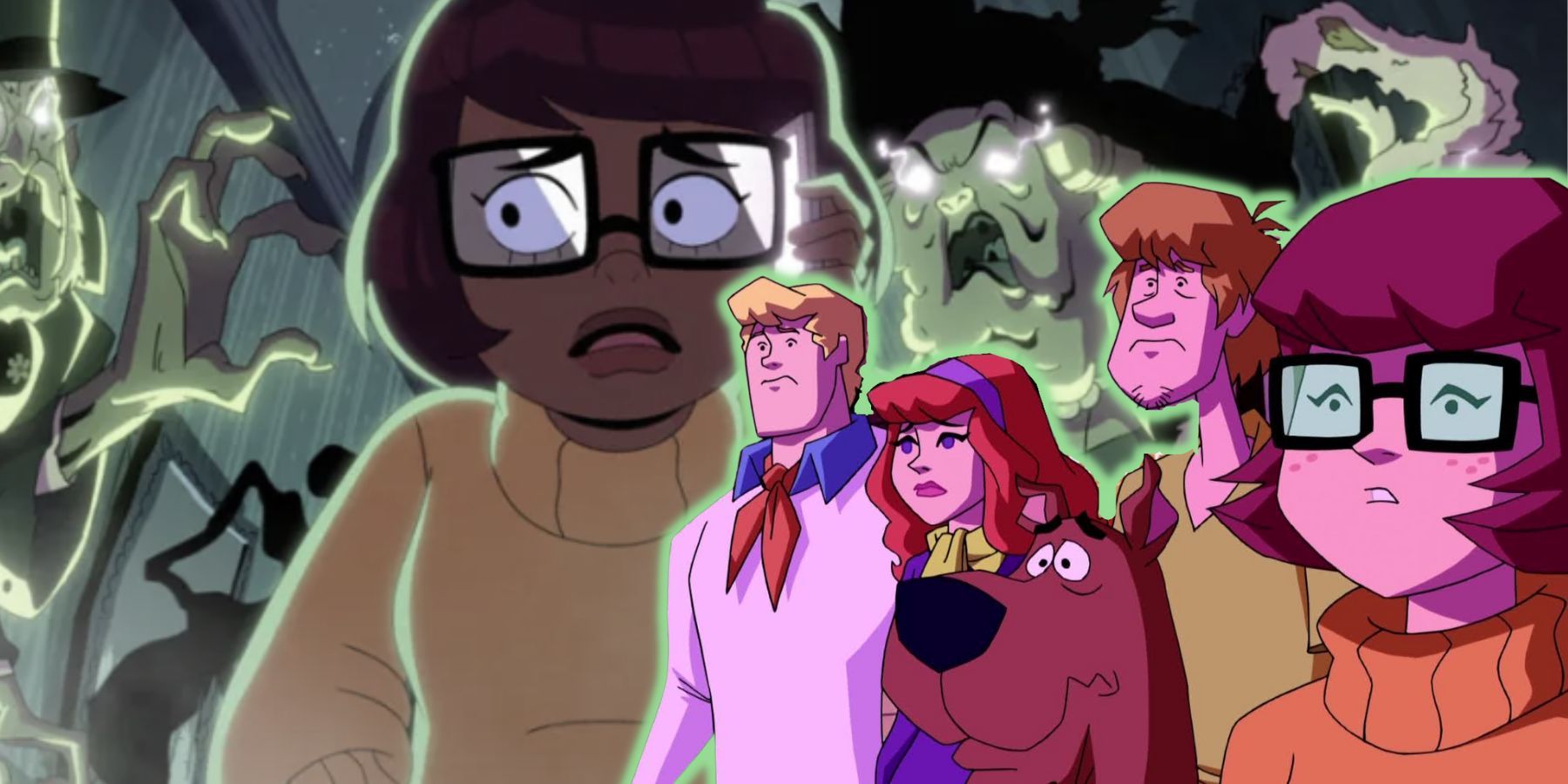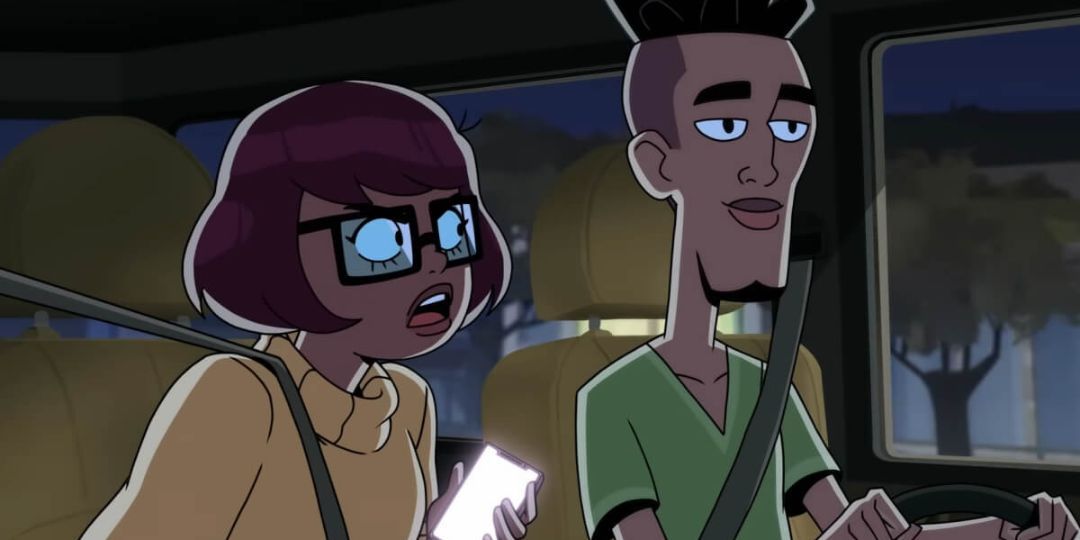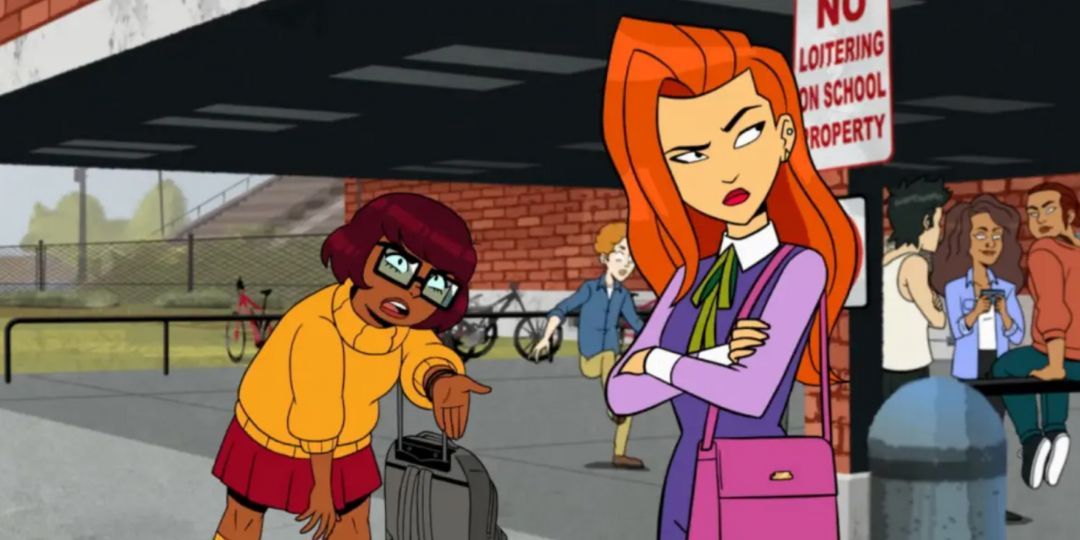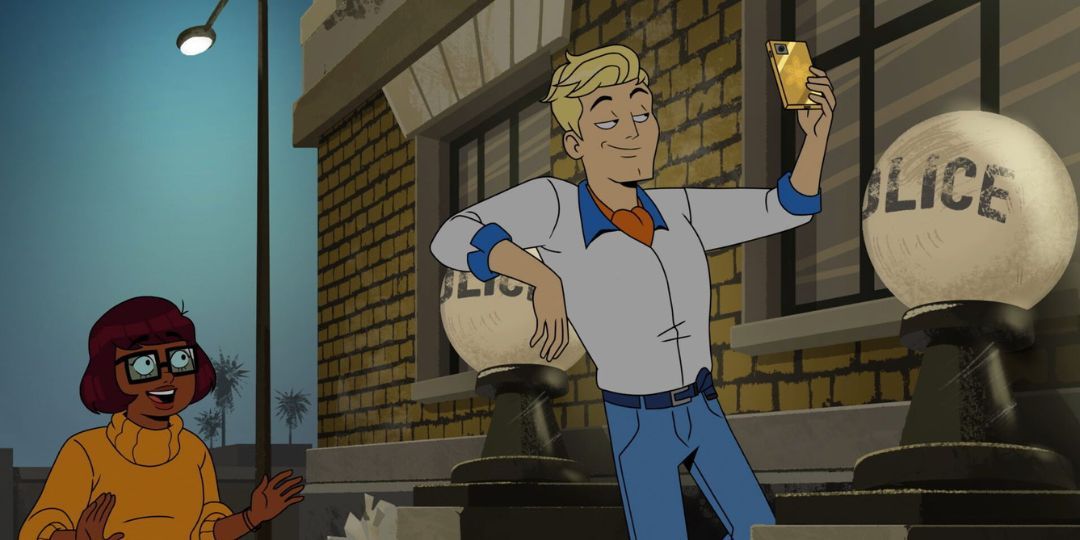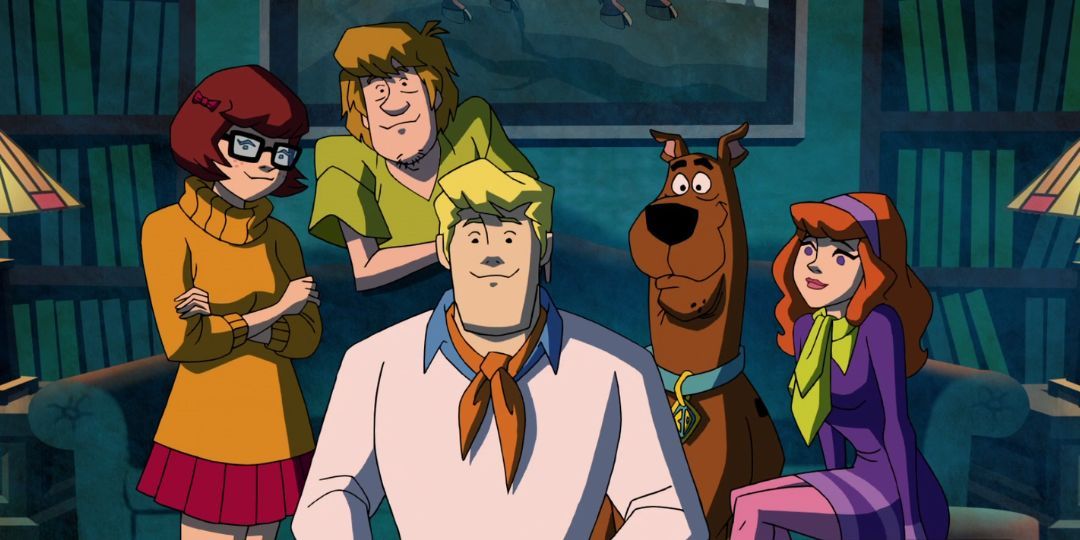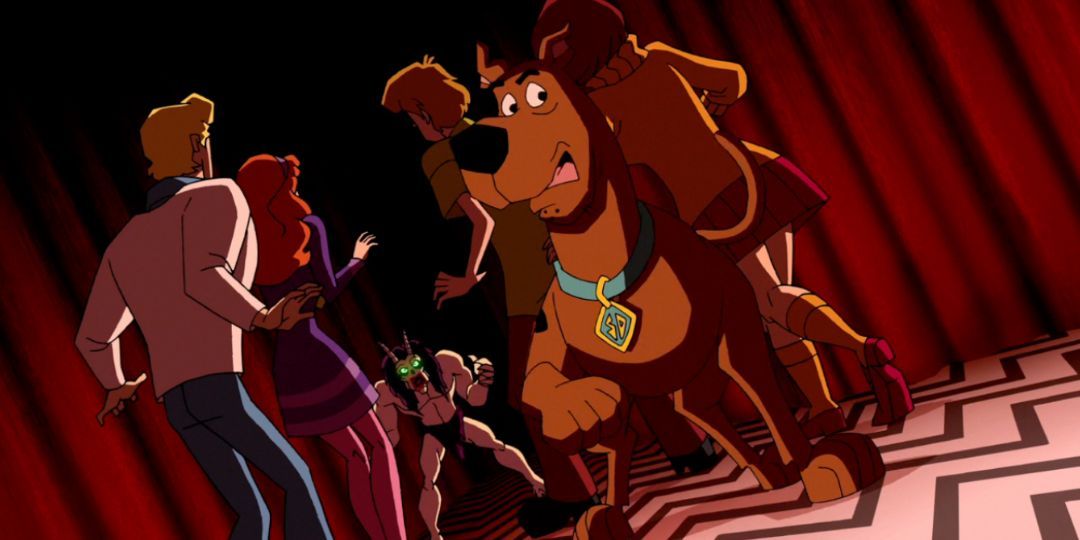While HBO’s The Last of Us is the talk of the internet — and breaking records for the network — another show debuted on HBO Max this January to more mixed results. Velma, which centers everyone’s favorite “Jinkies!”-exclaiming teen sleuth, is a departure from traditional Scooby-Doo lore. Created by Charlie Grandy (The Office) and executive produced by the new voice of Velma Mindy Kaling (Inside Out), the adult comedy series has dealt with both legitimate criticism and, unfairly, review bombing by bigoted trolls.
So, ahead of a second season, what can HBO’s irreverent-to-a-fault series do to win over audiences? Here’s what Velma can learn from a previous entry in the franchise, Scooby-Doo! Mystery Incorporated.
and the gang’s complicated high school love quadrangle.
What Is HBO’s Velma About?
Velma is a reinvention of the classic Hanna-Barbera characters who first solved mysteries on screen in 1969. Instead of jumping into Mystery Inc.’s sleuthing days, it focuses on Velma’s origin story — the pilot reminds viewers of that fact many, many times —
A life-long mystery lover, Velma becomes the prime suspect in a series of killings of girls at Coolsville High. Naturally, she needs to find the real serial killer to clear her name. But there are tons of other threads to navigate, including Velma’s disappeared mom and new family dynamics; a strained friends-to-enemies-to-something-more relationship with the ever-popular Daphne; and the town’s strange history, just to name a few. Perhaps most surprising of all? The series doesn’t feature Scooby, the long-running franchise’s Great Dane mascot and namesake.
Why Do People Dislike the Velma Show?
Aside from the “no notes” casting of the live-action Scooby-Doo films, all reimaginings are sure to be met with controversy. In that department, Velma has broken some records: It holds IMDb’s lowest rating — the aggregate score is holding steady at 1.3/10 — and, on Rotten Tomatoes, audience reviews have left it with a rotten score well under 10%. (As of writing, it holds a 6%.)
It’s painfully clear that a lot of self-proclaimed Scooby-Doo fans are upset by Velma’s more inclusive approach. The show’s titular character is a South Asian American bisexual woman, so, in large part, many of those score-crushing audience reviews stem from racism, homophobia, and misogyny. This makes Velma’s illegitimate low scores incredibly frustrating for fans, and an unwelcome repeat of what’s happened to other big-name properties helmed by women, people of color, and queer characters.
Professional reviews, on the other hand, have landed the show a more suitable — though still divided — score of 50% on Rotten Tomatoes. The good? Velma’s voice cast is stellar. Sam Richardson (The Afterparty) voices Norville Rogers and Constance Wu (Crazy Rich Asians) voices Daphne Blake, while supporting voice actors include the likes of Nicole Byer (Tuca & Bertie), Jane Lynch (Wreck-It Ralph), and Wanda Sykes (Harley Quinn). And the series’ art style is distinct — bold, colorful, and imaginative in a way that’s meant to complement Velma’s snark and the show’s over-the-top sight gags and cartoonish body horror.
But Velma has some legitimate flaws, too. The characters crank out jokes riddled with pop culture references, or some kind of meta “wink” at the audience, at a near-constant rate. Not only does this leave little room for any one joke to stand out, but it’s also done at the expense of crafting a cast of characters with substance or nuance. The show’s lack of focus, jarring tonal shifts, and ceaseless irreverence make it somewhat exhausting to watch.
Clearly, Velma aimed to be like HBO Max’s other highly successful adult animated comedy reimagining, Harley Quinn. But, unlike Velma, Harley knows when to land a joke (or a punch), how to write a slow-burn queer romance, and when to make fun of itself, genre tropes, and its source material.
What Can Velma Learn From Scooby Doo! Mystery Incorporated?
Although HBO Max hasn’t confirmed anything yet, there’s compelling evidence that Velma has already scored a second season, despite all the online controversy. A sophomore season could be just what the show’s team needs to refine their formula and create something that’s as heavy on the mystery and character development as it is on the style and snark.
The Scooby-Doo franchise isn’t new to reimaginings or poking fun at itself. In 1999, Cartoon Network put the gang at the center of a parody of The Blair Witch Project, that year’s most-talked about film. The found-footage parody mixed live-action and animated elements, exposing ‘90s kids to the incredibly funny, self-aware results. A year prior, Scooby-Doo on Zombie Island saw the gang, who’d gone their separate ways, reuniting to solve their allegedly first truly supernatural mystery.
But, when it comes to inspiration, the team behind Velma needs to revisit Scooby Doo! Mystery Incorporated, the eleventh incarnation of the cartoon series. Airing between 2010 and 2013, the series spanned two seasons and 52 episodes — though it deserved to stick around much, much longer. Like Velma, Mystery Incorporated takes a look at the gang’s early days.
Teenage sleuths Velma Dinkley (Mindy Cohn), Daphne Blake (Grey DeLisle), Fred Jones (Frank Welker), and Norville “Shaggy” Rogers (Matthew Lillard) — and Shaggy’s best pal Scooby-Doo (also, Welker) — live in Crystal Cove, the “Most Hauntedest Place on Earth.” All of those alleged monster and ghost sightings support the town’s tourism industry, so the gang’s continual debunking of said mysteries isn’t looked upon too kindly by Crystal Cove’s adults.
Mystery Incorporated works for a few reasons. First, it uses that tried-and-true monster-of-the-week formula Scooby-Doo is so known for, but approaches it with irreverence. For example, Fred might be something of a de facto team leader, but he’s also all-consumed with building traps — so much so that he’ll pick Trap Monthly magazine over Daphne’s affections. Since the gang is in high school, there’s also tons of relationship drama. In the first season, Velma confidently pursues Shaggy, who finds himself worried that Scoob will be jealous of all the time he’s spending with the brains of Mystery Inc.
All of this tongue-and-cheek humor contrasts so well with the ongoing — surprisingly dark — story arc that runs through each episode, with an unknown character called Mr. E pushing the gang to uncover more of Crystal Coves secrets — and those who came before them. Sharp-eyed horror fans will notice odes to Twin Peaks, Saw, and other iconic shows and movies, too.
The thing is, Mystery Incorporated knows how to balance all of these elements. It takes the series in a new, compelling direction, all while adding in welcome doses of that self-referential fan service and self-deprecating humor. It takes aim at the series’ tropes and characters, but it also loves them, and knows how to play with them. The show knows the importance of a balanced narrative structure, too: the episodic mysteries are fun, deepening the world of Crystal Cove and its characters, while the slowly revealed, over-arcing storyline adds up to an equally gripping case.
On a character level, Mystery Incorporated has Velma beat so far, too. Mystery Incorporated’s Velma is understandably fed up when the gang “splits up to look for clues,” leaving her solo; when Shaggy puts his dog before her feelings; or when she’s left to do most of the mystery solving on her own. She snaps at her teammates and boasts a bold, “over it” attitude, but Velma’s not mean for the sake of it. If HBO’s Velma wants to have a more successful second season, it should get a clue or two from Mystery Incorporated before its too-irreverent, uneven approach undermines all the good it has going for it.
New episodes of Velma will drop on HBO Max every Thursday through February 9, 2023.

